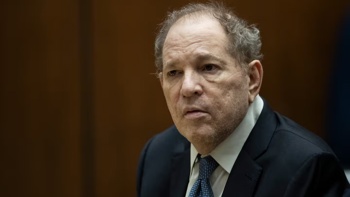
Two victims who lost $430,000 in a Citibank-branded investment scam claimed BNZ failed to detect warning signs of the fraud and should compensate them for their loss. Now in a precedent-setting decision, the Banking Ombudsman has agreed. Lane Nichols reports.
One of the country’s major banks has been told to reimburse two scam victims nearly $300,000 after a watchdog ruled the Australian-owned financial giant missed crucial “red flags” and failed to act with reasonable skill and care.
Two provisional Banking Ombudsman decisions obtained by the Weekend Herald say BNZ breached its obligations by failing to recognise the “real possibility” the victims were being defrauded.
While BNZ had a duty to follow the customers’ transaction instructions, there were clear warning signs of both cases being a known scam which should have triggered extra scrutiny by staff before the transactions were processed, the Banking Ombudsman found.
By failing to act, BNZ breached its obligations and was “substantially more culpable” than the two victims.
Whangārei health worker Borja Ares lost $330,000 after selling his family home and investing the proceeds in what he thought was a Citibank-brokered bond scheme in May last year.
And North Shore real estate agent Carla O’Neil lost her $100,000 life savings after being taken in by the same band of professional criminals last February.
The pair went public about their deception and have spearheaded a victims’ group highlighting failures in bank fraud detection systems, calling for compensation and better industry safeguards to protect customers.
A Herald investigation has detailed the plight of dozens of these victims, exposing gaps in the banking system which are being ruthlessly exploited by offshore scammers alongside local money mules.
The Banking Ombudsman has been assessing a raft of complaints from victims who collectively lost millions of dollars to the elaborate fraud, and has this week begun releasing its decisions.
/cloudfront-ap-southeast-2.images.arcpublishing.com/nzme/VEZ3OMDSHZGYZJKCPIU73DQXOU.JPG)
While Ares and O’Neil have been successful, many of the other victims have not.
O’Neil said news of their refunds was bittersweet.
“We want to feel elated but we’re feeling angry and frustrated for everyone else.”
She said the victims had all done their due diligence but were tricked by sophisticated criminal syndicates.
“Yes we got caught but the banks should have picked it up. These cases show us that the banking system is substandard and just not up to scratch.”
If the New Zealand financial sector had a confirmation of payee system in place, allowing customers to check the name on recipient accounts they were sending money to, most of the investment scams targeting Kiwis would be unable to operate, O’Neil said.
She urged regulators to force the banking sector to bring security systems into line with those of the UK and for victims to have the courage to come forward and lodge complaints with the Banking Ombudsman scheme.
Ares - who in June told the Herald: “I’ve failed my wife and children” - said he was thrilled with the Banking Ombudsman’s findings but suffering what he termed “survivor’s guilt” for those who’d been refused reimbursement.
“I’m feeling better now and seeing hope for my family. But it’s going to take a bit of time. The main feeling yesterday was sadness for the rest of the people. I didn’t feel joy.”
Ares said he was now feeling like a weight had lifted from his shoulders. After being defrauded he had suffered feelings of guilt, depression and shame, but decided to go public with his story to highlight failures in the banking system.
“It became kind of a fight for justice, not for me but for the others. I never expected this. I was focused on the huge potential of a negative outcome.”
/cloudfront-ap-southeast-2.images.arcpublishing.com/nzme/IKCU27DRGRE4POQFU3ITV52PLQ.JPG)
The Banking Ombudsman decisions represented an important precedent, which could help future victims - many of whom never came forward, he said.
“Most people do nothing about it. But we have found a hole or a gap in the armour of the banks.”
Ares thanked the Herald for its coverage, which he believed had put a spotlight on the issue and helped force change.
“This wouldn’t have happened without you.”
In July, BNZ - which recorded a $1.5 billion profit last year - issued final response letters to Ares and O’Neil refusing liability for their losses. It said the payments were “initiated and authorised” by the customers and there had been no evidence to alert staff that the transactions were a scam.
However, the Banking Ombudsman decisions disagree.
/cloudfront-ap-southeast-2.images.arcpublishing.com/nzme/QRN6HJYTQRERNSSPMLZGMJCCHY.jpg) Banking Ombudsman Nicola Sladden. Photo / NZME
Banking Ombudsman Nicola Sladden. Photo / NZME
They highlight that BNZ should have been aware of the Citibank scam through a 2022 FMA warning, multiple media reports, regulatory updates and “previous experience with such scams”, including a complaint relating to a Citibank scam reported to BNZ in July 2022.
The Banking Ombudsman said staff should be trained to recognise hallmarks of scams that were “widespread and well known” to the industry.
In O’Neil’s case, it found that payment instructions provided by the scammers, presented to BNZ staff, should have raised suspicions. O’Neil told staff she was making a Citibank investment but the payment instruction form stated the funds should be sent to an ASB account under her name with a Hamilton bank address.
In Ares’s case, he told staff on two occasions he was sending the money to an ASB account under his own name for an investment in Citibank. The Banking Ombudsman said these were hallmarks of a known scam “with which the bank was, by now, familiar”.
The Banking Ombudsman also noted that Citibank did not offer financial services to retail clients in NZ.
In failing to act on red flags in both cases, BNZ breached its obligations and was “substantially more culpable” than the two victims.
“When ... a bank suspects fraud, good banking practice requires it to make inquiries or warn the customer before processing the payment in question. In our view, there were good grounds for the bank to suspect [the victims] were being defrauded, and by failing to act when on notice, it breached this obligation.”
The victims lost a combined $430,000, with only a fraction able to be recovered. The decisions recommend BNZ reimburses both Ares and O’Neil 70 per cent of their losses - $217,297 and $54,998 respectively.
The parties have until February 29 to respond before the preliminary decision becomes final.
The Herald asked BNZ whether it accepted the decision or if it planned to challenge the findings.
A spokeswoman said: “We can confirm we’ve received the Banking Ombudsman’s preliminary view and would like to thank the Ombudsman for the work that has gone into these cases to date.
“We are currently reviewing these findings and will be responding in full in the coming weeks.”
How the scammers tricked victims into parting with their money
O’Neil lost $100,000 in February last year. She clicked on a fake website comparing bank term deposit rates before being contacted by a man with an English accent who claimed to be a Citibank portfolio manager. He convinced her to invest her life savings. Less than $20,000 could be recovered.
And Ares lost $330,000 after clicking on a similar website in May. He was also contacted by a man claiming to be a Citibank investment manager who convinced Ares to invest proceeds from the sale of his family home. Just $19,000 was recovered.
It’s not the first time a BNZ customer has lost money in a Citibank-branded scam. Nelson firefighter Cath Mulalley lost $325,000 in 2022, with only $60,000 recovered.
It’s estimated that offshore scammers are siphoning hundreds of millions of dollars out of New Zealand each year. The worsening situation has sparked calls for banks to invest in better security systems to protect customers. Police admit foreign scammers are almost impossible to identify and that stolen money is unlikely to be traced.
O’Neil and Ares both complained about BNZ’s handling of their cases and its failure to identify the transactions as suspicious.
They claimed:
The Citibank scam was known to the New Zealand banking industry since at least 2022 and BNZ should have been on notice.
- In both cases, BNZ was aware the money was not going to a Citibank account, but to another New Zealand bank, which should have been a red flag.
- BNZ should have known that Citibank does not offer this type of retail investment in New Zealand.
- Ares’ case came just months after O’Neil’s $100,000 loss in the same scam, meaning BNZ should have been on watch for this fraud.
- Despite BNZ claiming to have state-of-the-art fraud prevention measures, it failed to detect either scam.
The victims also claimed BNZ had a duty to protect its customers and should therefore take some financial responsibility for the fraudulent losses.
A BNZ spokeswoman told the Herald last year the bank investigated both fraud cases and found it was not liable.
Both scams involved the customers unknowingly engaging with a scammer during an online search for financial services, the spokeswoman said.
The money transfers were “initiated and authorised by the customer”.
In O’Neil’s case, information and paperwork she presented showed no evidence the planned transaction was a scam. Term deposit transfers were common across the banking industry, and it was not unusual for legitimate financial service providers to have accounts at New Zealand’s main banks.
In Ares’ case, while he mentioned his intention to invest with Citibank, he told bank staff the money was being transferred to his own account at ASB.
“These investment scams prey on people’s trust in reputable brands and mimic investment firms and banks closely. No organisation is immune from impersonation.”
BNZ urged customers to exercise extreme caution and do their research before investing money, and to contact investment firms through their official New Zealand-based websites, never via unprompted online contacts, emails or phone calls.
Ares said, in his view, BNZ was avoiding responsibility and “victim blaming”.
“I think it shows greatly the lack of heart they have. I consider them extremely heartless. They have all the power.”
O’Neil said neither BNZ nor the FMA had warnings about the Citibank scam on their websites at the time she was tricked, despite banks knowing about it since 2022.
“I’m not the first one that’s been caught by this scam.
“New Zealanders are soft targets because we don’t have the security in place. It’s bananas,” she believed.
/cloudfront-ap-southeast-2.images.arcpublishing.com/nzme/67PQLTIV5DXLOYB5OVYHRDQAJY.jpg) Claire Matthews is an associate professor at Massey University business school.
Claire Matthews is an associate professor at Massey University business school.
Massey University banking expert professor Claire Matthews said last year she was surprised BNZ had not taken some responsibility for the victims’ losses.
“I think it would be reasonable to say, ‘Perhaps we didn’t ask as many questions as we should have’ and make some partial reimbursement. But the customers must take some responsibility.”
Matthews said banks invested heavily in security systems to try to detect scams. They provided advice to customers on their websites and had beefed up fraud investigation teams due to the rise in online financial crime.
While the UK was introducing rules to force banks to refund authorised payments when customers had been scammed, this could make people less careful when conducting online transactions, she warned.
Scammers could also see their offending as a “victimless crime” if banks were required to bail out duped customers.
Matthews said banks faced a difficult balancing act between being vigilant to help their customers avoid being scammed, while not being overly intrusive in customers’ normal transactions.
Lane Nichols is a senior journalist and deputy head of news based in Auckland. Before joining the Herald in 2012, he spent a decade at Wellington’s Dominion Post and Nelson Mail.
Take your Radio, Podcasts and Music with you









